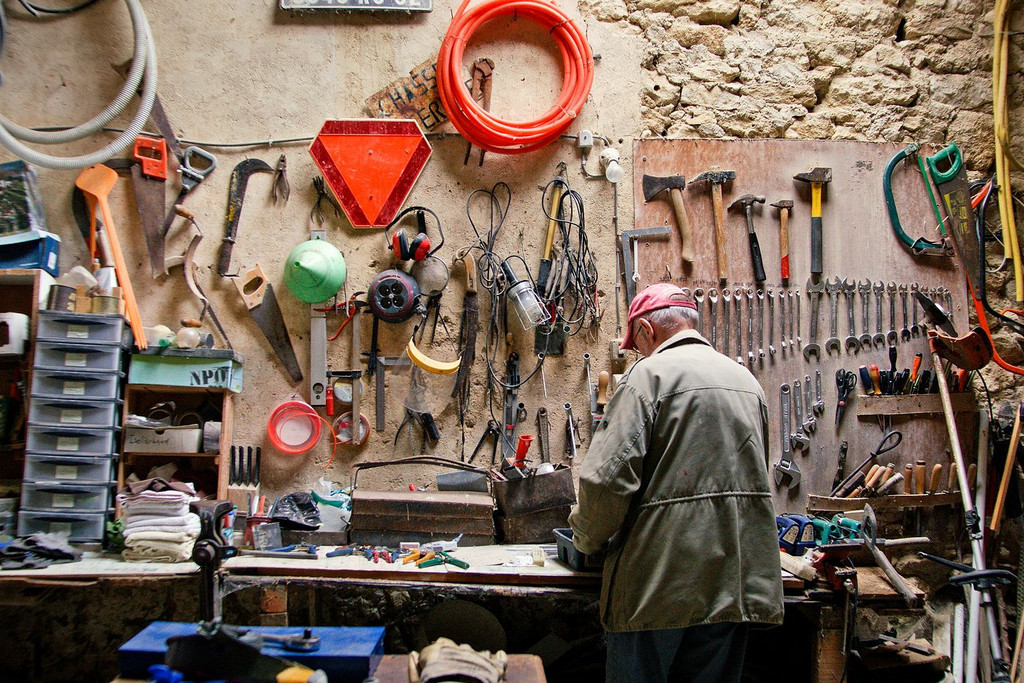Publisher, patron (as heiress to and shareholder in Roche), woman of culture, speaker of four languages, Polish, Swiss, member of various cultural circles: Vera Michalski seems to lead several different lives. Her life stretches to the four corners of the globe, but when she meets us, her personality radiates calm: a polished calm that, like a sheet of ice on a lake, allows the light to pass through, while separating the water from the sky. In other words, she is modest, in a literary kind of way. The homecountry of the Director of the publishing group Libella is, without a doubt, world literature. But this intellectual, cosmopolitan position in no way prevents her from feeling Swiss and from taking on the qualities of a country that in the beginning was foreign to her. “I left Switzerland for the Camargue when I was three weeks old and I lived there until I was 17,” says the great-granddaughter of Fritz Hoffmann-La Roche, founder of the eponymous pharmaceutical business.
During her childhood years, life at Tour du Valat, the ornithological centre in the Camargue run by her father, Luc Hoffmann, co-founder of WWF, was somewhat isolated from the rest of the world. But there were visitors aplenty, bringing the family news from around the world. Did Vera feel Swiss? “I was made to feel that I wasn’t French,” she says without bitterness. “We had values that linked us to Switzerland.” Such as? The founder of the Jan Michalski Foundation, named after her late Polish husband, who died in 2002, is not sure if she knows. She talks more about a general atmosphere. Christmas celebrations were divided between two days: the first in the Camargue and the second at the family home in Basel. In winter, the children would go off to Lenzerheide in Graubünden. On 1 August, the residents of the centre would make a bonfire, “in case there were any Swiss there”. Today, when Vera Michalski meets booksellers from Paris to present new books that she is publishing, she always insists on saying she is Swiss “because that is part of the history of the Libella Group” (see below).
The aunt and the language of Goethe
Between horse riding and reading, the teenage Vera was fascinated by political discussion and discovered the Gallic art of debate. “I find it strange that, in contrast, people in Switzerland don’t really argue,” she laughs. Back then, the postal vote did not exist and books arrived by post “and not by email in sets of ten, like they do in publishing these days”, she sighs. An Austrian aunt on her mother’s side sent her books in the language of Goethe, the language that Vera’s mother used to speak to her children.
Moving from one language to another, from one country to another: that was just life for Vera Michalski. She sits astride Switzerland, Poland and France. She publishes in Warsaw and Krakow. She also works in Paris and Arles, the town where she has a pied-à-terre and where one of her two sisters works. She has a base in Lausanne and finally in Montricher in the Canton of Vaud, where Vera has created a writers association at the foot of the Jura Mountains (see textbox).
Cartoons
When asked to talk about what she likes in Switzerland, she mentions daily newspapers, theatres, cinemas, museums and foundations. “The cultural density of this country is unique,” she says. But she laments the way the press has run out of steam: “The number of titles has withered, they have become more and more alike and they have fewer cultural pages.” Switzerland has also given the world great artists and writers, the publisher stresses. She mentions in particular Paul Klee, Blaise Cendrars and Nicolas Bouvier, but also the Valais writer Noëlle Revaz, the Neuchâtel singer Olivia Pedroli, and the photographers Christian Lutz and Augustin Rebetez.
Vera Michalski cannot stop reading – she even fulminates against menus with spelling mistakes. But her work as a publisher has taken her beyond words and into the world of cartoons. As a teenager, she loved the exuberant and sometimes lewd cartoons of the French creator Gotlib. Within Libella, cartoons have a special place. The French cartoonist and writer Frédéric Pajak heads the “Cahiers Dessinés” collection, which publishes, among others, the Zurich cartoonist Anna Sommer. He himself received the Prix Médicis essai for non-fiction in 2014 for the third volume of his “Manifeste incertain”.
Pioneer in Poland
We mention the conservative initiatives that have marked Switzerland’s recent history: the initiatives to ban minarets and against mass immigration, for example. Vera Michalski is firmly against “turning in on oneself”. This trend strikes her as both “against [her] values and disastrous from a practical point of view”. The metaphor of Switzerland as an island is one that she is not opposed to when it is used to talk about preserving its landscapes, which she believes to be unique. “But this kind of thought is only possible in relation to the rest of world because we cannot rely only on ourselves,” she clarifies.
Her marriage to Jan Michalski, whom she met in Geneva while studying at the Graduate Institute of International and Development Studies, led the couple to look towards the East. At that time, the wall was still up. Their idea? To build bridges across this iron curtain by opening a publishing house first in Switzerland, then in Poland (L’Oficyna Literacka Noir sur Blanc). Today, the iron curtain has fallen, but the need for cultural diplomacy between East and West remains. Vera Michalski is above all delighted to have given Poland the first translations of Charles Bukowski, Henry Miller and Nicolas Bouvier. Noir sur Blanc Poland also published Umberto Eco, whom she has had the honour of meeting several times.
The war in Ukraine and the election at the end of May of an ultraconservative president in Poland make the existence of bridges more imperative than ever according to Vera Michalski.
Literature as cultural diplomacy: this is Vera Michalski’s weapon. She made a huge effort, for example, at the last Geneva Book Fair to welcome Russian writers snubbed by the Russian cultural organiser, Read Russia. “In the end, they were able to sit down and talk to each other,” she says, delighted.
The Roche wealth (the Hoffman and Oeri families are worth between CHF 26 and 27 billion according to a valuation by “Bilan” published in 2014) is used by Vera Michalski to benefit others, in particular through her foundation. But is the money tainted with guilt? And is the pharmaceutical industry morally beyond reproach? The Roche heiress and shareholder gives a relatively conventional response to these points. Receiving dividends? She says she is grateful: “It is marvellous to have these resources available to make all these activities possible and to benefit others to the greatest extent possible.” There is certainly a debt to the family “because you have either created or you have inherited”. But there is no need “to be embarrassed by this wealth because Roche has always been at the forefront of ethics and social responsibility”, fires off Vera Michalski-Hoffmann. The shareholder – she does not sit on Roche’s Board of Directors as her brother André and father Luc do – is also keen to point out that “to make generics, you first have to develop the drug molecule”. She is quick to stress that “pharma is an industry and not the Salvation Army”. It is this that puts an end to the discussion about money, showing that under the fine layer of ice beats a heart not without strength and passion.
An association for writers
“Stopping the erosion of reading”: such is the mission of the director of the Jan Michalski Foundation. This objective is expressed most notably through the creation of a writers’ association, located in Montricher, a village at the foot of the Jura mountains overlooking Lake Geneva. This project, which is still being developed, brings together a collection of places open to the public and dedicated to literature: a library that will eventually house 80,000 works of world literature, a 100-seat auditorium that will host art and literature events, an exhibition room and, finally writers’ “cabins” designed by various architects.
These places, which are open to nature and hanging like the gardens of Babylon will be ready to receive authors in 2018, according to the patron. Her foundation supports numerous projects, such as an edition of Franz Kafka’s manuscripts, published by Stroemfeld. “Books that would otherwise never see the light of day,” she says.
Libella: books that cross borders
Vera Michalski is at the head of a publishing group that publishes some 360 books a year, half of which are in French and the rest in Polish. The venture began in Switzerland in 1986 when she and Jan Michalski set up the group itself and the publishing house Éditions Noir Sur Blanc, which was established in Poland in 1991. The company recently published “Adieu aux illusions” (“Parting With Illusions”) by the Russian-American journalist Vladimir Pozner. “He is the only person to have an entirely free TV programme in Russia,” the publisher points out.
Libella has also made acquisitions, such as the Parisian publishing house Buchet/Chastel, founded in 1929. The group’s holding includes Libretto (paperbacks), Le Temps Apprivoisé (dedicated to creative hobbies), and Librairie Polonaise de Paris, located on the Boulevard Saint-Germain. Vera Michalski also owns Editions Photosynthèses in Arles, which publishes essays on photography and the visual arts.
www.libella.fr
www.fondation-janmichalski.com/de















Comments
Comments :